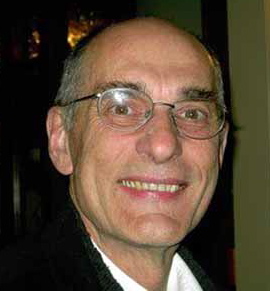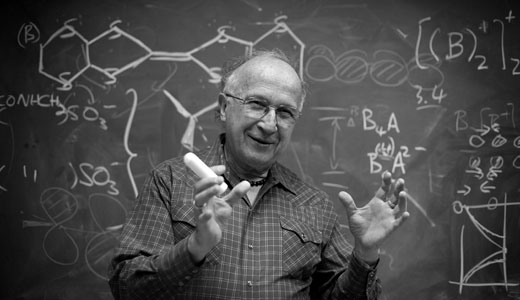Kitchen Polish
I can’t tell you about Kant
in Polish, or the Reformation,
or deconstruction
or why the Nazis moved east
before moving west,
or where I came from,
but I can count to ten, say hello
and goodbye, ask for coffee,
bread or soup.
I can tell you people die.
It’s a fact of life,
and there’s nothing
you or I can do about it.
I can say, “Please, God,”
and “Don’t be afraid.”
If I look out at the rain
I can tell you it’s falling.
If there’s snow,
I can say, “It’s cold outside
today, and it’ll most likely
be cold tomorrow.”
Dumb Polacks
Good children, we played outside
while our tired mother slept inside
resting from working the night shift,
and then a boy came along.
A bully, he was big and hard
and threw the ball at us
again and again, and called us DPs
and Dumb Polacks.Frightened
we called to our mother softly
in the English we didn’t know
and had only practiced in whispers,
“Mother, Mother, Mother.”
She had no English at all
and didn’t come, and the boy
kicked us ‘til we both were screaming,
“Mother, Mother, Mother.”
Back in the house later,
with our tears and fearfulness,
we told her what happened
and she said, “Why didn’t you call?”
We just stood there in silence.
What could we say to her?
Second Language Acquisition
They look at you and make assumptions:
you’re from Chicago, you know the rules
to baseball, you have grandparents who live
in Kansas, you get the music of the Twenties,
you know what to wear when you go to church,
your dad doesn’t eat pickled pigs feet
with vinegar.And then you do something
that throws them off.Maybe you don’t get a joke
or the subtext of a familiar phrase.
This always happens to me, especially in class
when I’m teaching.A student says something,
and I just don’t get it and everyone else does,
and then there I am, once more starring
through my silence at a worldthat speaks
a language I’ll never master.
That’s when they know that you’re odd, different.
I laugh it off, tell them I’m a non-native
speaker, and they’re puzzled for a moment
and don’t know if I’m joking or what.
But outside class, a person will feel my difference
is just a little too much, and he’ll turn away.
Picture from creativecommons.org
 John Guzlowski is an award-winning poet and blogger extraordinaire: http://lightning-and-ashes.blogspot.com/. A retired professor of contemporary literature at Eastern Illinois University, Guzlowski has written extensively on Polish, Jewish and Polish American writing and poetry. His own poetry is inspired by his parents’ years in German camps and the family’s experience as post-war immigrants and deals with the universal themes of trauma, pain, memory, parent-child relations and love. Guzlowski’s latest book, Lightning and Ashes, is now available.
John Guzlowski is an award-winning poet and blogger extraordinaire: http://lightning-and-ashes.blogspot.com/. A retired professor of contemporary literature at Eastern Illinois University, Guzlowski has written extensively on Polish, Jewish and Polish American writing and poetry. His own poetry is inspired by his parents’ years in German camps and the family’s experience as post-war immigrants and deals with the universal themes of trauma, pain, memory, parent-child relations and love. Guzlowski’s latest book, Lightning and Ashes, is now available.



